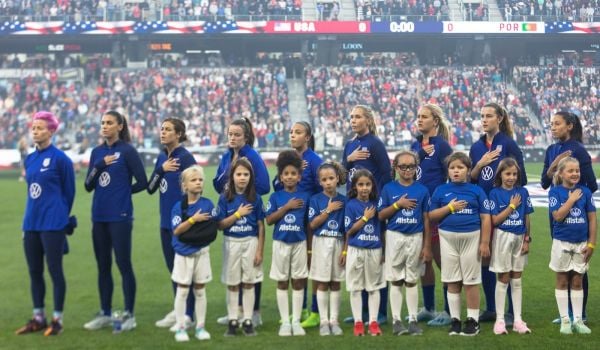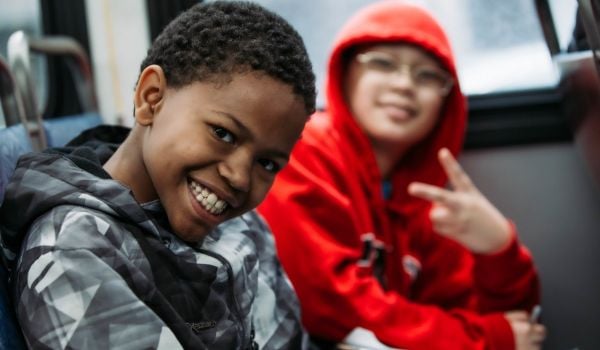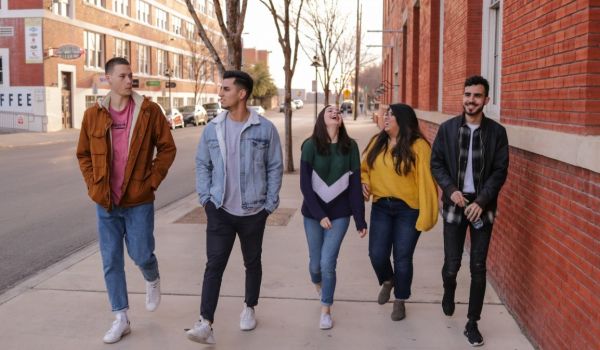This article first appeared on Verite News and is republished here under a Creative Commons license.![]()
When Ra’Son Johnson heard about a study giving teens $50 a week for 40 weeks, she says she immediately signed up because she needed the cash.
Ra’Son is a junior at Rooted School, a charter high school located on the campus of Southern University at New Orleans. The school is part of the Rooted School Foundation, which has campuses in New Orleans and Indianapolis. The charter group’s mission is to “close America’s wealth gap by connecting underserved and talented teenagers with career and financial pathways,” according to its website.
For Ra’Son, the money meant she could grab a bite to eat before her after-school programs and get a new poncho from the mall. It also meant she could start saving up for a summer program at Berklee College of Music in Boston. Through the regular debit card transfers, Johnson has learned how to responsibly spend and save, she says.
“You have to talk yourself into not spending more than what you want to spend,” she says. “It’s like having an angel and a demon on your shoulder. … You want to save because once it runs out, it runs out.”
Ra’Son is one of 47 Rooted School students in New Orleans currently participating in the unconditional cash transfer study, which began in 2022 and has run in phases across three schools in New Orleans and Indianapolis. The study looks at whether these small, consistent sums of cash might reduce teenagers’ financial hardship and help them do better in school.
The Rooted School Foundation received a $100,000 grant earlier this year from a national nonprofit called Education Leaders of Color to help fund the study. Last month, Rooted School also received $1 million from the city of New Orleans, through the city’s “Economic Mobility in Motion Initiative,” to expand the study to 1,600 New Orleans high school seniors next year, with half receiving the weekly paychecks and the other half acting as a control group. The group has also received money from other foundations and nonprofits to fund the initiative.
Jonathan Johnson, founder of the Rooted School Foundation, and his team drew from research showing positive outcomes of cash transfer programs as they designed the Rooted School Foundation’s study.
School leaders wanted to see if the cash payments could also help alleviate problems that were exacerbated by the COVID-19 pandemic, such as frequent absenteeism and waning academic achievement.
So far, the study has included 470 participants, with 173 receiving the payments, from three different schools: the two Rooted Schools in New Orleans and Indianapolis, and George Washington Carver High School in New Orleans. Students in the study’s current phase began receiving payments in fall 2023 and will get their last cash allowance in July.
A report from August 2023 offered a snapshot of how approximately 150 students in the study’s first phase, which ran from fall 2022 to fall 2023, were spending their money.
About half of the cash disbursed went toward food and groceries, while most of the other half went to retail services, according to the preliminary findings. Of the participants, 56% reported a family income below $30,000, while 47% lived in single-parent households.
“Most of the spend is on what we’re considering basic needs,” Johnson says, “which would suggest that there is … a need going unmet in their day-to-day lives that this weekly transfer is helping to support.”
For Rooted School New Orleans Executive Director Kaitlin Karpinski, the program offers a safety net for young people to experiment with money.
“Our mission here at Rooted School NOLA is to put students on a personalized pathway to financial freedom,” she says. “I think we’re gonna see financial freedom because kids have had that practice, given how they had all these opportunities to be successful or to fail in their execution of money.”
Karpinski says her students’ financial responsibility has surprised her.
“The value of [the study] is beyond looking at our biases and archetypes or trusting kids,” she says. “It is about what true financial literacy means for our society.”
The administrators have found that students who receive the weekly cash allowances are less likely to be absent from school compared to those who don’t. Johnson also added that participants are also doing better academically than their peers at school, earning more credits and higher GPAs.
Johnson noticed that students in the study now have broader aspirations and goals, and “interviews with students suggest that the cash is a big reason for that,” he says.
“I just so want people to know about our kids’ excellence,” Karpinski says. “The narrative is so often about crime and about everything that’s wrong with our young people, and that is such a terribly missed opportunity to acknowledge just rampant success. So I love programs like these because it’s proof.”
Johnson says he and his team are looking to expand the study to other parts of the country in the next few years.

Minh (Nate) Ha is a recent magna cum laude graduate from American University with a Bachelor's degree in journalism. Originally from Ho Chi Minh City, Vietnam, Ha has spent the past four years in Washington, D.C.
He has a passion for storytelling and experience covering various topics. His reporting includes stories about how second-generation Vietnamese Americans fought to protect their community center in Virginia amidst redevelopment plans and the construction and delays of the Washington D.C. metro.
















